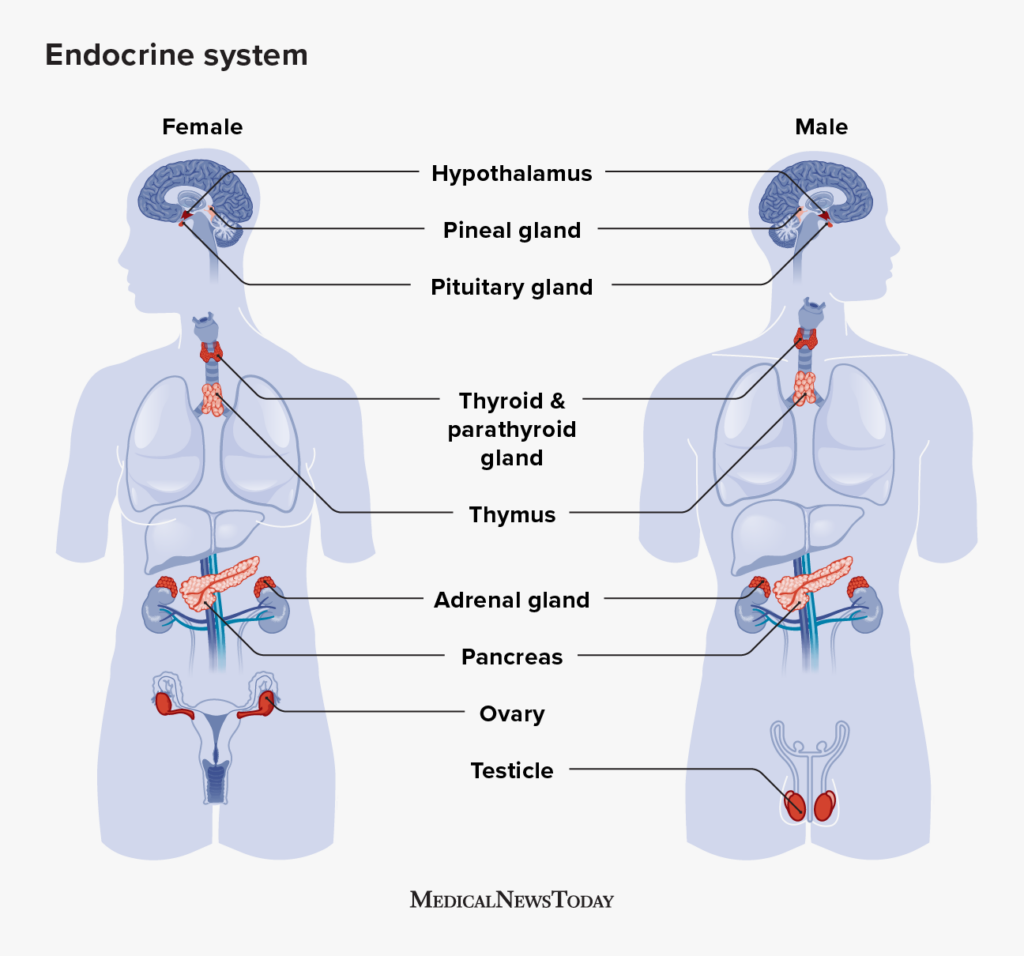Endocrinology: Delving into the World of Hormones and Health
Wiki Article
The Scientific Research Behind Hormonal Agent Policy: Insights From an Endocrinologist
The Science Behind Hormone Policy: Insights From an Endocrinologist uses a detailed expedition of the intricate procedures included in hormone guideline. Composed by a knowledgeable endocrinologist, this informative guide explores the remarkable world of hormonal agents and their essential duty in maintaining physical functions. From the basics of hormone production to the facility responses loopholes that regulate their release, this publication provides a careful exam of the systems at play. Additionally, it explores the various factors that can interfere with hormonal agent balance and uses useful insights right into how these inequalities can be detected and dealt with. Whether you are a doctor seeking a deeper understanding of endocrine feature or a specific interested in discovering the science behind hormonal agent law, this book is an indispensable source.Hormonal Agents and Their Features
Hormonal agents play important roles in the policy and coordination of various physiological procedures within the body. These chemical carriers are produced by endocrine glands and are launched into the bloodstream, where they travel to target cells or body organs to exert their impacts. The features of hormones vary and incorporate nearly every element of human physiology.Among the key functions of hormones is to maintain homeostasis, which is the steady inner environment required for the body to work optimally. Insulin, a hormone produced by the pancreas, regulates blood sugar levels by advertising the uptake and storage space of sugar in cells. An additional hormone, cortisol, assists the body react to stress by raising blood glucose levels and suppressing the body immune system.
Hormones also play vital duties in growth and advancement. Growth hormone, created by the pituitary gland, promotes the growth of bones and tissues, while thyroid hormones control metabolic process and influence the growth of the nervous system - Endocrinologist. Additionally, reproductive hormones, such as estrogen and testosterone, are responsible for the advancement and maintenance of additional sexual features and the policy of the menstrual cycle
The Endocrine System: An Overview
Playing a critical role in the regulation and control of physiological processes, the endocrine system is a complicated network of glands that produce and release hormones into the bloodstream. These glands, including the hypothalamus, pituitary gland, thyroid gland, adrenal glands, pancreas, ovaries, and testes, secrete hormones that act as chemical messengers, influencing numerous physical features. The endocrine system operates in combination with the nerve system to control and keep homeostasis, making sure that the body's interior atmosphere stays stable.The hypothalamus, located in the brain, is taken into consideration the master regulatory authority of the endocrine system. It generates hormonal agents that hinder the launch or promote of hormones from the pituitary gland, which subsequently manages the activity of other endocrine glands. The thyroid gland, situated in the neck, generates hormones that regulate metabolism and power equilibrium. The adrenal glands, situated atop the kidneys, produce hormonal agents that assist the body respond to stress and manage high blood pressure.

Law of Hormone Production
The guideline of hormone production includes an intricate interplay in between numerous glands and feedback mechanisms within the endocrine system. Hormones are chemical carriers that play a critical duty in keeping homeostasis and working with numerous physical procedures in the body. The production of hormones is snugly controlled to ensure the correct performance of the endocrine system.The hypothalamus, situated in the brain, acts as a key regulator of hormonal agent manufacturing. It releases hormones that hinder the production or boost of hormones by the pituitary gland, which is frequently referred to as the "master gland" of the endocrine system. The pituitary gland, in turn, generates hormones that act upon different target glands throughout the body, promoting them to produce and release details hormones.
Comments mechanisms also play a vital function in hormonal agent policy. There are two kinds of comments systems: unfavorable feedback and positive like this feedback. Unfavorable responses helps maintain hormonal agent levels within a narrow variety. When hormone degrees climb over or drop below the optimal array, the body activates systems to either decrease or rise hormone production, respectively, to restore equilibrium. Favorable feedback, on the other hand, enhances the manufacturing of hormonal agents in reaction to particular stimulations, such as childbirth.
Comments Loops in Hormone Regulation
Feedback loops play a crucial duty in the law of hormonal agent production. These loopholes entail a collection of interactions in between the endocrine glands, hormonal agents, and target organs to keep homeostasis in the body. There are 2 kinds of comments loops: adverse responses and positive comments.When hormone degrees increase above a specific limit, the hypothalamus in the brain signals the pituitary gland to decrease hormonal agent production. Alternatively, when hormone degrees drop listed below the limit, the hypothalamus boosts the pituitary gland to enhance hormonal agent production, bring back balance.
Favorable comments loops, on the other hand, magnify hormonal agent production. This takes place when a hormone boosts the launch of even more of the very same hormonal agent, leading to a quick boost in its levels. Favorable comments loopholes are much less typical in hormone guideline and are typically entailed in details physical procedures, such as giving birth and lactation.
Factors Influencing Hormonal Agent Balance
Factors affecting hormonal agent balance include nutritional options, lifestyle behaviors, and environmental direct exposures. These elements can have a significant influence on the fragile equilibrium of hormonal agents in the body, impacting various physical procedures and overall health and wellness.Nutritional options play an essential duty in hormone law. Eating a well balanced diet regimen that includes a range of nutrients is necessary for maintaining hormone equilibrium. Particular nutrients, such as omega-3 fatty acids, vitamins, and minerals, are specifically vital for ideal hormone feature. On the various other hand, a diet high in refined foods, refined sugars, and undesirable fats can interfere with hormone degrees and bring about inequalities.
Way of life behaviors, such as exercise, sleep patterns, and stress administration, likewise affect hormonal agent equilibrium. Normal physical task helps regulate hormonal agent levels, advertises overall wellness, and decreases the danger of hormonal conditions. Ample rest is essential for hormonal agent production and policy, as interrupted rest patterns can bring about inequalities. In addition, persistent tension can dysregulate the hypothalamic-pituitary-adrenal (HPA) axis, a principal in hormone policy, leading to a waterfall of hormonal discrepancies.

Conclusion
In final thought, recognizing the scientific research behind hormonal agent regulation is crucial for preserving total health and wellness and health. Hormones play important functions in numerous physical features, and their manufacturing is regulated by complex comments loops.The Science Behind Hormonal Agent Law: Insights From an Endocrinologist uses a detailed exploration of the elaborate processes included in hormonal agent law. It generates hormonal agents that hinder the launch or boost of hormones from the useful source pituitary gland, which in turn manages the activity of other endocrine glands. It releases hormones that inhibit the manufacturing or boost of hormonal agents by the pituitary gland, which is typically referred to as the "master gland" of the endocrine system. The pituitary gland, in turn, more info here creates hormonal agents that act on various target glands throughout the body, promoting them to create and launch specific hormones.
When hormone degrees increase over a specific limit, the hypothalamus in the brain indicates the pituitary gland to decrease hormonal agent production. (Endocrinology)
Report this wiki page